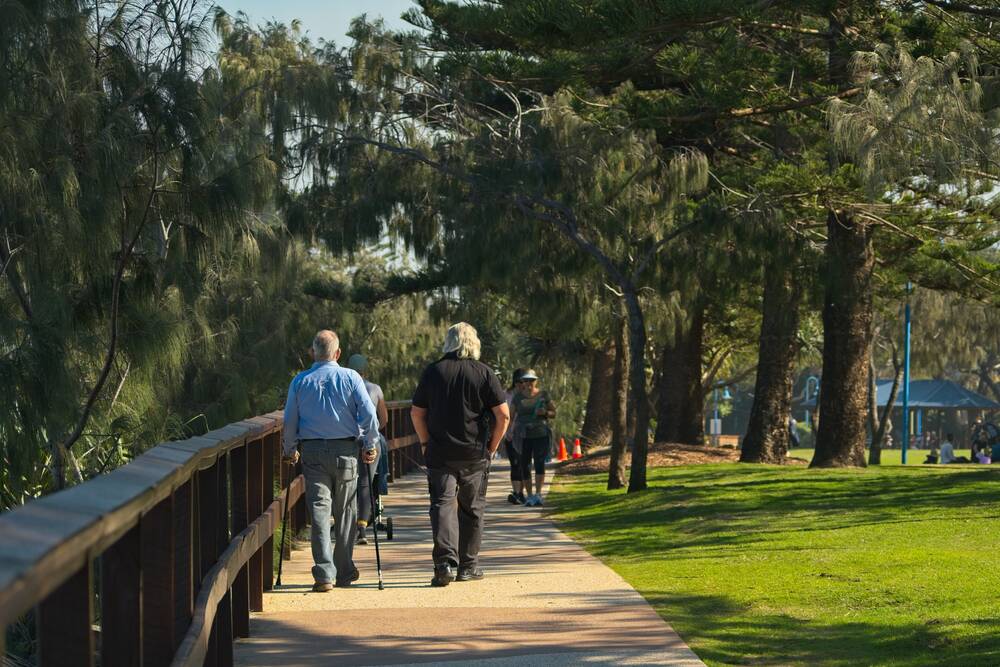Redefining retirement: Exploring the flexibility of modern aged care

This is branded content.
Australia's aged care system has experienced some monumental changes over the past few years in particular, with state and federal government initiatives seeking to improve access to senior support and resources.
Alongside this, modern retirement villages have followed suit to provide their residents with more control over their care, offering flexible care packages that are designed to be tailored to individual needs.
Doing away with 'cookie cutter' aged care packages, has naturally transformed the relationship that many Australian seniors have with aged care solutions, with a growing majority of senior citizens recognising the value that aged care providers offer with regards to both quality care as well as personal enrichment throughout retirement.
But what does this industry reform look like on a day-to-day basis? We'll be exploring the flexibility of Australia's reformed aged care system below, and how these reforms impact real Australian seniors.
The different types of aged care
The actual construct of the 'aged care facility' has undergone a massive transformation in itself. In the present day, care facilities can take on a wealth of different forms, ranging from home care packages, to retirement or lifestyle villages that provide seniors with all the benefits of community care.
Home care packages are becoming increasingly popular amongst new retirees who may have specific care needs but are still enjoying living in their own homes and their familiar communities.
Some Aussie seniors may also have had some experience with short-term care facilities, which assist individuals transitioning from clinical care facilities back into living at home.
When selecting an aged care solution, it's vital for seniors to explore the different types of aged care and their respective benefits and limitations, alongside making inquiries with your local aged care providers.
As many care providers strive to offer flexible care packages, there's a high likelihood that some of your shortlisted care packages may be able to provide additional resources for seniors who may require particular services.
The building blocks of a modern retirement village
So how have traditional aged care facilities changed over the years? With industry reform, aged care providers have been able to offer a larger selection of different care services and environments, with retirement villages allowing senior citizens to purchase their own home and become part of a wider community of their peers.
This is preferable to many seniors who are looking to retain a sense of independence alongside ensuring they maintain access to high quality healthcare and wellness services, as modern retirement villages also come equipped with dedicated medical facilities that have the means to offer specialist care for the village's elderly population.
Alongside ensuring that seniors have access to high quality healthcare, retirement villages also often come equipped with a myriad of other recreational facilities, including tennis courts, ovals, swimming pools, and in some cases, golf courses and other large-scale amenities.
As homes in retirement villages are also a fraction of the cost of other properties, retirement villages managed by aged care providers have also proven to be valuable opportunities for Aussie seniors who are looking to downsize in their retirement.
Understanding the impact of holistic healthcare
The inclusion of recreational amenities and facilities in modern retirement villages isn't just considered to be a 'bonus' or even characteristic of 'luxury' aged care services, however.
It's becoming increasingly common for these recreational facilities and activities to be utilised in the development of weekly care routines for seniors receiving care.
The reason for this is simply due to the fact that modern aged care solutions incorporate the power of holistic healthcare in their development and design.
The health benefits that accompany maintaining a nutritionally balanced diet, daily mental stimulation, and engaging in plenty of regular physical activity, cannot be understated.
Holistic healthcare has also been proven to cut costs of clinical care, not just for aged care providers but across wider society too. In essence, holistic care ensures that Aussie seniors feel enriched and active in retirement, alongside also allowing a larger population of seniors to access aged care services at minimal costs.
The growth of community care
One other element of providing holistic care is naturally utilising the power of community care in the development and design of weekly care routines. Seniors don't necessarily need to live in retirement villages to reap the benefits of community care, with home care packages also generally providing seniors with opportunities for engaging with their wider communities through participating in community groups, as well as offering at-home support with grocery shopping and other household chores using the same carers with every week, cultivating a sense of community for individuals receiving care.
In modern retirement villages, community care generally includes the addition of leisure activities to weekly routines, or encouraging senior citizens to participate in community groups or support groups, including groups designed to offer peer support for Aussie seniors experiencing shared health concerns, or personal circumstances like grief.
The opportunity to interact with the same faces and make lasting connections with both their carers and peers, naturally ensures that seniors receiving care maintain strong mental and emotional wellbeing, as well as ensuring a higher standard of living when receiving ongoing care, regardless of whatever care solution they've selected.
~
There is undoubtedly an abundance of aged care providers, each with their own packages and specialist services.
Conducting research to find the right provider for you and your needs is still imperative, as is communicating with your family and other loved ones to ensure that your selected care solution and new care routines incorporate plenty of quality time with the people who matter the most.


